Barsoom or Bust!
For example, as Carter spends a good deal of time among the green Martians of Thark, having been accepted as one of their own, he learns much about their customs and culture. Carter describes the green Martian’s communal method of child-raising, and claims it “is the direct cause of the loss of all the finer feelings and higher humanitarian instincts among these poor creatures. From birth they know no father or mother love, they know not the meaning of the word home…” (Princess, ch.7). By showing us this “new world” Burroughs raises an implicit criticism of community child-rearing, a rather extreme version of the “it takes a village to raise a child” idea. However, he acknowledges that such an approach may indeed be needed in certain situations, such as “a hard and pitiless struggle for existence upon a dying planet” (Ibid). Burroughs, in describing the green Martians rigorous breeding program, may also have been the first mainstream author to bring up the controversial topic of birth control and zero-population growth (Bozarth 13).
While not anti-religious, Burroughs dared to raise criticism of organized religion, at least of the fundamentalist dogmatic variety, in his novels. In The Master Mind of Mars, a city’s theocracy deceives its population through the pretend voice of a false idol, while in Thuvia, Maid of Mars, an ancient civilization with psychic powers worships a banth (a Martian lion), which superstition and fear has raised to the level of deity. But the most prominent example is from The Gods of Mars, in which Carter encounters an entire race (two, actually) who have perpetuated religious superstition across the planet for millennia in order to provide themselves with a steady supply of slaves from the rest of Barsoom’s population, while the deceitful races’ own deity turns out to be nothing more than an ancient, wicked Martian who rules through terror. Burroughs even makes his protagonist into something of a messiah figure. (The initials J.C. are a big clue.) When Carter “dies” on Mars, his body cannot be found because he has been miraculously transported to the Martian equivalent of Heaven, which lies down the River Iss on the shores of the Lost Sea of Korus. He eventually returns from the “afterlife” to reveal the “Truth” to Martiankind, and overthrows the dominant religious order. Along the way Burroughs offers criticism of the dangers of dogmatism, and of the abuse and exploitation which he saw as a common feature of organized religion.
He also subtly addresses the racism of his day, by turning it on its head. Barsoom is populated with a veritable rainbow of races, including green, white, red, black, yellow and blue, but they do not fill stereotypical roles. He presents the red Martians, representing the oppressed Native Americans of Burroughs’s time, as the dominant civilized surface race, with a navy of giant airships. The black Martians also have their typical real-world roles reversed. Depicted as the paragon of physical perfection, they enslave the once proud and ancient white Martians, even cannibalizing them for food as an allegory for the exploitation of African slaves. (Compare Robert Heinlein’s Farnham’s Freehold.) The yellow Martians appear the most technologically advanced, having developed greenhouse domes to protect their cities at the bitterly cold Martian poles. That it is a Confederate soldier who also fought against Apaches out West who describes and comments on these racial situations adds additional self-conscious irony.
By having his protagonist come from a different world, Burroughs is free to speculate and speak critically through Carter upon the differences between Earth and Barsoomian culture in a way in which he could not if his character was from Barsoom. This tactic of bringing in an outsider in order to provide social commentary hearkens back as least as far as Swift’s Gulliver’s Travels. And even when the protagonist is from Mars, as is Gahan of Gathol in The Chessmen of Mars, the hero inevitably encounters a culture which is alien to that of his own, which enables him (and the reader) to reflect upon the differences between them. Gahan arrives in the country of the kaldanes, sentient beings who have evolved to the point of being almost pure brains with very little body. In turn, they physically interact with the world through enslaved creatures called rykors, who have almost no brain and would starve without the kaldanes to direct them to food. Burroughs uses the kaldanes to deride the growing idea that reasoning ability should be “uncontaminated” by sentiment and physicality. (Gene Roddenberry made the same point decades later by bringing his own “outsider” to Earth society: Spock.)

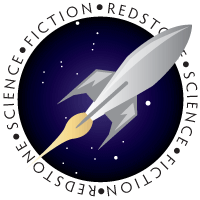






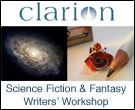



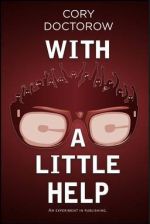
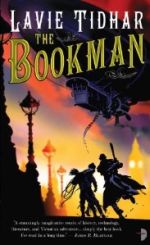
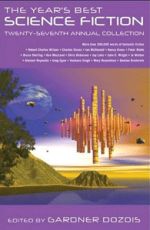


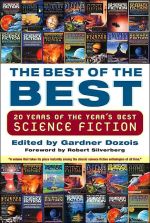
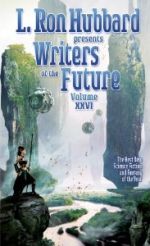

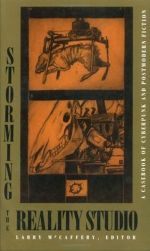



8 comments
[…] http://redstonesciencefiction.com/2010/05/cribbs-essay-june2010/ Posted by Blue Tyson 4.0, study, t non-fiction, z free sf Subscribe to RSS feed […]
[…] http://redstonesciencefiction.com/2010/05/cribbs-essay-june2010/ […]
[…] This post was mentioned on Twitter by Dan James, Jeff A. Jones. Jeff A. Jones said: Barsoom or Bust! | Redstone Science Fiction http://bit.ly/dAXKh6 […]
A well researched and thoughtfully written essay. Though I don’t think sci-fi novels are treated worse by Hollywood than other genres. In fact it’s my impression over the years that the best novels make the worst movies, and vice versa. E.g. Everything is Illuminated by J. S. Foer is one of the best books I’ve read and thumbs down the worst movie I’ve ever tired to watch. Is this because the better the novel, the more must be left out or changed to fit the movie?
Thanks, that was a very engaging and well-written essay.
Fantastic essay!
A wonderfully entertaining essay. Thank you. I was enthralled by the portions dealing with Burroughs and the John Carter books. In regard to making any headway towards resolving the book vs. movie debate, well, bonne chance, mon ami. To a dedicated reader the movie is always inferior, and to a dedicated movie buff it doesn’t matter.
[…] Barsoom or Bust!: The Lasting Influence of The Martian Tales by Henry Cribbs […]